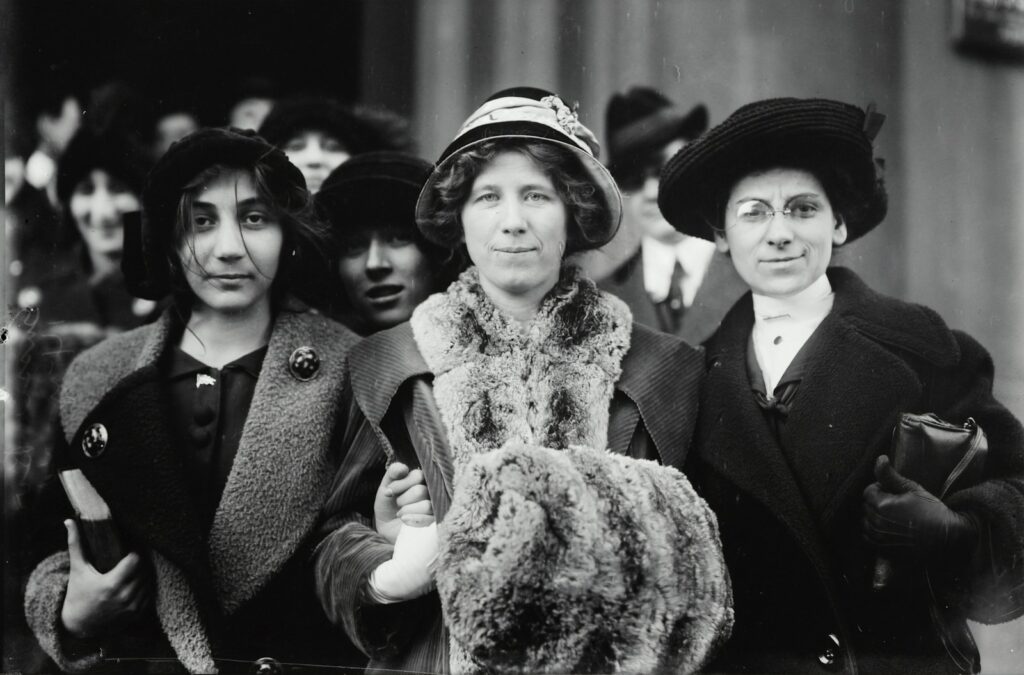
Sallie Bingham, an acclaimed author, playwright, feminist, and philanthropist, whose decisive role contributed to the sale of her family’s prestigious media empire, The Courier Journal, has died. She passed away from a stroke at her home in Santa Fe, New Mexico, on the evening of August 6, at the age of 88, according to Keith L. Runyon, a former colleague at The Courier Journal.
Born on January 22, 1937, in Louisville, Kentucky, Bingham grew up with four siblings in a family often described as “the Kennedys of the South” for their considerable wealth, influence, and political presence. The family’s media legacy began in 1918 when her grandfather, Robert Worth Bingham, acquired The Courier Journal along with its sister publication, The Louisville Times.
Over time, leadership of the newspapers passed to her father, Barry Bingham Sr., and later to her brother, Barry Bingham Jr. For decades, the enterprise remained a closely held family institution until its eventual and highly publicized sale, a turning point shaped in part by Sallie Bingham’s actions.

From Literary Voice to Family Dissenter: Sallie Bingham’s Defining Years
Sallie Bingham’s literary career began in 1960 with the publication of After Such Knowledge. Over the decades, she produced 15 short story collections along with numerous novels, memoirs, and plays, as documented on her personal website. For more than twenty-five years, she was deeply engaged in New York City’s literary circles, building a reputation as a prolific and incisive writer.
In 1977, she returned to Louisville, where her brother, Barry Bingham Jr., led the family’s newspaper operations. During this time, she reconnected with colleagues such as Keith L. Runyon, a staff writer for The Courier Journal, forging a bond rooted in shared literary interests despite occasional professional disagreements.
Runyon recalled their collaboration when Bingham became book-page editor at The Courier Journal in the early 1980s. He described the experience as “a real delight but also a challenge because she had an extremely perceptive mind, sharp tongue and was fearless in sharing her opinions, which made her a terrific editor of a section of criticism.” This period reflected the assertiveness and intellectual independence that would later define her public actions.
Beyond her editorial role, Bingham was a committed and outspoken feminist, advocating within the newsroom for improved treatment and greater opportunities for female employees. Her activism mirrored her broader dedication to gender equality.
The roots of the family’s public rift, which eventually led to the sale of their media empire, emerged in 1984. That year, Barry Bingham Jr. asked Sallie and other women serving on the company’s board to resign. Her refusal triggered a series of events that culminated in the loss of family control.
Bingham then placed her 15 percent ownership stake on the market, declaring she was prepared to sell to an outside buyer if her terms were not met. The family responded with a significantly lower offer. As reported by The Courier Journal, Barry Bingham Jr. argued that her price would impose unsustainable debt on the company, setting the stage for an extended and highly public dispute over valuation and authority.

The Sale That Ended a Dynasty: How Family Discord Reshaped Louisville’s Media Landscape
In 1986, Barry Bingham Sr., then 79 and serving as chairman of the family’s companies, made the pivotal announcement that the family would sell all its holdings. The transaction included The Courier-Journal, WHAS-TV and radio stations, and the printing company Standard Gravure, with reported figures ranging from 390 million to 450 million dollars.
While Sallie Bingham played a significant role in initiating the events leading to the sale, subsequent examinations, including newspaper coverage and the book The Patriarch: The Rise and Fall of the Bingham Dynasty by Alex Jones and Susan Tifft, suggest a more complex story. The authors revealed that Barry Bingham Sr. acknowledged he and his wife, Mary, had failed to instill the value of compromise in their children.
Sallie Bingham herself affirmed this in her memoir Passion and Prejudice, noting that she and her siblings never developed the ability to address conflicts collaboratively. She attributed this to their privileged upbringing, where problems were routinely resolved “like magic” by household staff and company managers, leaving them unaccustomed to direct conflict resolution.
The family discord that ended the newspaper’s family-owned era remains a defining, though contentious, part of Sallie Bingham’s legacy in Louisville. Yet her influence extended well beyond this decisive chapter, leaving a lasting impact across literature, philanthropy, and advocacy.

Sallie Bingham’s Enduring Literary Legacy and Commitment to Conservation
Keith L. Runyon also remembered Sallie Bingham as an accomplished author whose works conveyed a vivid and distinctive sense of place. He expressed confidence in the longevity of her artistic achievements, stating, “I think that as time passes, especially her fiction will withstand the test of time,” affirming her lasting contribution to literature independent of her family’s history.
Beyond her literary accomplishments, Bingham was a dedicated conservationist. In 1999, she placed her 412-acre farm in Jefferson County under a conservation easement with River Fields, a land trust, ensuring it would remain undeveloped. This decision preserved the property as a sanctuary of natural beauty within an increasingly urbanized county.
Kristin Faurest, President and CEO of River Fields, commended Bingham’s foresight and generosity, describing the land as “an absolutely unique and wondrous landscape.” She emphasized Bingham’s belief that “things of beauty — whether it’s cultural or natural landscape — once it’s destroyed, you can’t bring it back,” reflecting her deep commitment to environmental preservation.
Faurest further credited Bingham with inspiring others to adopt conservation easements, which have safeguarded additional natural areas in Louisville. She noted, “She gave in so many areas,” and concluded that “River Fields would not be what it is today without Sallie’s contributions,” underscoring her significant philanthropic influence.

Sallie Bingham’s Lifelong Commitment to Women’s Empowerment and the Complex Origins of a Media Fortune
Sallie Bingham’s philanthropic work was deeply rooted in advancing women’s empowerment. According to her biography, she was an active feminist who founded several influential organizations, including the Kentucky Foundation for Women, the Sallie Bingham Center for Women’s History and Culture at Duke University, and the Women’s Project and Productions in New York City. Each of these institutions stands as a testament to her dedication to expanding opportunities and recognition for women.
Her personal life was closely interwoven with her family’s legacy. She was married three times, each ending in divorce, and is survived by her sons Barry Ellsworth and Christopher Iovenko, as well as her sister Eleanor Bingham Miller. She endured a devastating loss when her third son, William Iovenko, went missing in 2017. His remains were found 16 months later, with authorities determining he had died from exposure to freezing conditions.
The origins of the Bingham family’s wealth, which sustained their powerful media holdings, have long attracted historical attention. Her grandfather, Robert Worth Bingham, a lawyer who moved to Kentucky in 1896, reportedly made three ambitious vows: to marry a wealthy woman, to become mayor of the city, and to be appointed U.S. ambassador to England. He achieved all three, aided by advantageous marriages.
The dynasty’s fortune largely stemmed from women’s wealth. Robert Worth Bingham’s second wife, Mary Kenan Flagler, widow of Henry M. Flagler, the Florida oil and railroad magnate, had inherited an estate exceeding 100 million dollars. Her death only months after marrying Judge Bingham, leaving him 5 million dollars, caused significant public controversy at the time.

Family Scandal, Media Triumphs, and a Gilded Childhood: The Binghams’ Legacy
The death of Mary Kenan Flagler Bingham in 1917 ignited a bitter legal dispute. Her family contested the will, suspecting that Robert Worth Bingham had poisoned her. The case drew national attention and led to the exhumation of her body for an autopsy. Although the results were never made public, Robert Worth Bingham ultimately received his inheritance in 1918. He used one million dollars of it to acquire a controlling interest in The Courier Journal and The Louisville Times. While journalist David Leon Chandler’s investigative work suggested foul play, Marie Brenner’s account in House of Dreams concluded that “what really happened to Mary Lily Bingham on this June day in Louisville will always be a mystery.”
Under the stewardship of Robert Worth Bingham’s son, Barry Bingham Sr., from 1937 to 1971, the newspapers earned national acclaim, winning three Pulitzer Prizes. The media empire expanded to include a CBS television affiliate, two highly ranked radio stations, and a printing operation. Throughout this period, the publications maintained a progressive editorial stance, championing causes such as school desegregation, labor rights, environmental protection, and women’s equality, often standing in opposition to the prevailing conservatism of the American South.
Sallie Bingham and her older brothers, Worth and Barry Jr., born in the 1930s, were raised at Melcombe, the family’s Georgian-style estate set on 40 acres overlooking the Ohio River. Two younger siblings, Jonathan and Eleanor, were born in the 1940s. With their father frequently away on business and their mother engaged in extensive social commitments, the children were largely brought up by five household staff members, including a cherished nurse affectionately known as “Nursie.”
Privilege, Loss, and the Silence That Shaped the Bingham Family
Sallie Bingham maintained a close bond with her father, who nurtured her literary aspirations and read classical works to her. This distinguished her upbringing from that of her brothers. She later reflected on the disparity in expectations, noting that she faced “restrictions with which her two older brothers did not have to contend,” particularly regarding opportunities to assume “large roles or risk-taking positions in important matters, or in life itself.”
The family endured a series of devastating tragedies. In 1964, Jonathan, aged 21, was electrocuted at the family’s Melcombe estate while stringing lights for a Cub Scout reunion. Two years later, Worth, then 34, died instantly in Nantucket when a surfboard protruding from his car struck a parked vehicle, fatally injuring his neck.
These sudden and unusual deaths placed Barry Bingham Jr. in the leadership role at the family’s newspapers, a responsibility he may not have initially sought. At the time, Sallie was living in New York and, in moments of reflection, held her parents partly accountable for the circumstances surrounding her brothers’ deaths. She believed that their privileged upbringing had shielded them from understanding the real consequences of their actions.
She observed that the children, accustomed to a life in which servants attended to their every need, might have unconsciously assumed their father could protect them from recklessness, just as he might have intervened on behalf of detained reporters. This absence of accountability, instilled from an early age, contributed to what she described as the family’s “tragedy of noncommunication,” where aristocratic reserve stifled open dialogue, allowing grievances to fester unspoken.

Sallie Bingham’s Return to Louisville and Her Fight for Women’s Voices
In 1977, twenty-three years after leaving Louisville, Sallie Bingham returned following the end of her second marriage, accompanied by her two young sons. Her decision was driven by a desire to address “basic conflicts with the family” that physical distance had long left unresolved, and by a newfound ability to articulate the feminist principles she had not consciously recognized earlier in life.
Her psychoanalyst had advised that she could not “go through life alienated from my family” and that her “ambivalence about male authority would have to be resolved.” The following year, her younger sister, Eleanor, also returned to Louisville after a career in documentary filmmaking, during which she produced a controversial film about the Ku Klux Klan.
Despite a decade separating their childhoods, Sallie and Eleanor developed a closer relationship, united by a shared concern for the position of women within society, the family, and the Bingham media enterprises. Sallie observed “that if the ideas came from women, they weren’t [considered] worth anything” within the male-dominated corporate structure, a reflection of the systemic gender bias they sought to confront.

Family Tensions and Corporate Challenges in the Bingham Media Empire
The mutual discomfort between Sallie Bingham and Barry Bingham Jr. was palpable. Barry felt the tension deeply, a sentiment heightened when Sallie became the sole family member to refuse signing a 1980 stock buy-back agreement intended to keep company ownership strictly within the family. The agreement required members to offer their shares to family members before selling to outsiders.
Sallie recalled the meeting during which the documents were distributed and expected to be signed promptly, “just like in school.” She declined to sign without legal counsel, prompting her mother to remark, “The room is full of lawyers.” Feeling dismissed and treated as a “fool,” Sallie expressed that the agreement fostered an atmosphere of distrust that signing would not alleviate. She noted that, “for Barry, anyone who was not marching in step was a big threat.”
To secure continued family involvement, Barry Bingham Sr. had appointed Sallie, Eleanor, his wife Mary, and Edie Bingham—Barry Jr.’s wife—as voting members of the company boards in 1975. Sallie and Eleanor consistently raised concerns about the promotion and advancement of women and minorities within the enterprises.
During this era, Louisville’s transformation into a declining industrial city adversely affected the newspaper industry. Rising operational costs and falling circulation, combined with profit margins reportedly below industry norms, posed significant challenges. Although The Courier-Journal continued to win Pulitzer Prizes, it notably failed to appear on Time magazine’s “10 Best” list in 1984 for the first time, signaling a shift in its prestige.

Sallie Bingham’s Advocacy and Boardroom Conflicts in a Changing Media Landscape
Sallie Bingham felt a profound duty to protect the newspapers’ historic role as a public trust and a liberal voice amid mounting economic pressures. Her concern intensified when the traditionally Democratic newspapers endorsed Republican mayoral candidate George Clark over the popular and progressive Democrat Harvey Sloane. In response, Sallie authored a letter to the editor, criticizing the papers’ decision as misguided.
Barry Bingham Jr. expressed a contrasting view regarding the contributions of women on the board, asserting they rarely posed meaningful questions and made “no significant contributions.” He further stated that “most of them couldn’t read a P & L,” and concluded that “the learning process just didn’t take place,” characterizing Sallie as “one of the least contributing members.”
Perspectives from non-family board members and observers vary. Some recalled occasions when the women asked questions that revealed a lack of business understanding, with one recalling Sallie frequently appearing inattentive. However, others acknowledged Sallie’s valid critique of the companies’ lack of female representation in management roles.

Sallie Bingham’s Editorial Role and the Complex Dynamics within The Courier Journal
Despite criticisms, the newspapers maintained one of the nation’s strongest records for hiring racial minorities, a success largely credited to a female editor reassigned to oversee affirmative action. This nuanced perspective underscores the complexities of internal progress and perceptions within the organization.
In 1982, Barry Bingham Sr. appointed Sallie as the book editor of The Courier Journal, a position once held by her mother. This move, possibly aimed at strengthening her ties to the company, reportedly unsettled Barry Bingham Jr., who expressed disapproval over the manner in which the position was created, as it displaced Shirley Williams, the long-standing editor.
Sallie’s impact on the book section was immediate, marked by increased coverage of women authors and greater inclusion of women reviewers. However, this period of relative calm was short-lived as underlying family tensions soon resurfaced.

Family Boardroom Battles and Sallie Bingham’s Stock Dispute
In the autumn of 1983, Barry Bingham Jr. formally requested that all female family members, including his mother, resign from the company boards. This move followed the advice of external consultants Leon and Katy Danco from the Center for Family Business in Cleveland, hired by Barry Jr. Sallie refused to meet with the Dancos after receiving Katy Danco’s book, which contained provocative chapters such as “A Boss We Also Sleep With.”
Sallie viewed Barry Jr.’s demand as an ultimatum, as he threatened to resign if the women did not comply. While the other Bingham women eventually acquiesced, Sallie remained steadfast in her refusal and was consequently voted off the boards in March 1984, an experience she described as humiliating.
The CBS program “60 Minutes” later revealed that Mary Bingham supported Sallie’s removal despite being critical of Barry Jr. Barry Jr. denied that his primary goal was to remove Sallie, yet Barry Sr. was quoted by The New York Times suggesting otherwise, stating that Barry Jr. feared Sallie’s critical stance and potential to undermine him. Following this, two women, Carol Goldberg and Barbara Gardner Proctor, were appointed to the board, marking a complex realignment in company governance.
In the winter of 1984, Sallie offered her stock in the Bingham companies for sale to her family with an asking price of $42 million. The family rejected this offer, prompting Sallie to put the shares on the open market. In response, the family made a counteroffer of $25 million in July, which Sallie declined based on advice from a New York investment bank that valued her stock between $82 million and $92 million.

Sallie Bingham’s Financial Decisions Reflect Feminist Commitment Amid Family Disputes
Sallie’s shares, representing an estimated 14.6 percent equity ownership, were insufficient to grant an outside buyer controlling leverage, resulting in limited interest from prospective purchasers reluctant to invest in a family-owned enterprise likely to remain under family control for years. After eight months without a sale, Sallie lowered her asking price to $32 million, prompting a family counteroffer of $26.3 million. Despite the difficult choice, Sallie remained firm, expressing that she “couldn’t give in.”
During this prolonged negotiation, Sallie, now married to Louisville building contractor Tim Peters, committed to aligning her financial decisions with her feminist principles, continuing her family’s legacy of community reinvestment. She recalled witnessing a woman struggling with twin infants and a collapsible stroller as she attempted to cross a street, likely to reach a Spouse Abuse Center. Additionally, she noted the disparity within a prominent law firm where male lawyers occupied offices with windows, while female secretaries worked in windowless cubicles.
These observations led Sallie to reflect that women’s choices in such an environment appeared limited to “marriage-dependency-poverty” or becoming “an accessory to a powerful man” through roles such as secretary, wife, mistress, or collaborator. Recognizing the substantial financial value tied to her stock, she began envisioning how she could “effect some change.”
Sallie Bingham’s Philanthropic Vision and Family Stock Negotiations
Sallie Bingham utilized her current income to establish the Kentucky Foundation for Women, an organization devoted to supporting women in the arts. The foundation aimed to finance initiatives such as archives preserving regional women’s history and a national literary and political quarterly, The American Voice. In a poignant acknowledgment of her family’s complex legacy, Sallie also expressed the intention to create the Mary Kenan Flagler Prize in honor of her stepgrandmother, “who never had the use of her inherited money.”
Meanwhile, Eleanor Bingham, who sympathized with Sallie’s position but wished to avoid estrangement from their parents, grew increasingly apprehensive about her own future. In June 1985, Barry Bingham Jr. proposed a stock-swap arrangement wherein Eleanor would exchange her newspaper stock for his WHAS stock, giving each a majority interest in one of the principal companies, with the plan to buy out Sallie. This proposal appeared designed to separate Eleanor from a united front with Sallie.
Although Eleanor initially welcomed the idea, negotiations with Barry Jr. soon became contentious. As an alternative, Barry Jr. introduced the “Wednesday Plan,” proposing the sale of the broadcast properties and printing company to fund the buyout of both sisters, offering Sallie $36.4 million and Eleanor $37 million. Eleanor favored the original stock-swap proposal, contingent upon Sallie receiving a fair price, as she believed Sallie would accept $28 million to support her foundation’s mission.

The End of an Era: The Bingham Family’s Media Legacy and a Final Reconciliation
Despite business advisers asserting that the companies could accommodate a new offer for Sallie, Barry Bingham Jr. challenged their conclusions and declined to continue negotiations regarding the price. Barry Bingham Sr. ultimately vetoed the so-called Wednesday Plan, expressing concern that it would jeopardize the financial stability of the newspapers. As his father reported, Barry Sr. believed that “anything more would be a victory for Sallie and a defeat for him.” By this stage, both potential resolutions and patience had been exhausted.
On January 8, just weeks before his 80th birthday, Barry Bingham Sr. convened a meeting at his home with Eleanor and Barry Jr., announcing the decision to sell the entire media portfolio. This event signaled the end of the Bingham family’s three-generation stewardship of their media empire.
In a poignant development, Sallie Bingham and Barry Bingham Jr. reconciled during the final two years of his life. Emily Bingham, Barry Jr.’s daughter, shared with WHAS11 that Sallie had visited him, and they spent “a long afternoon together, ending with forgiveness on both sides.” She reflected that this shared moment “cast a perhaps unexpected shaft of light on Sallie Bingham as we honor and remember her today.”

Sallie Bingham’s life presents a multifaceted legacy marked by complexity and undeniable significance. Born into a powerful yet internally conflicted Southern dynasty, she emerged as a distinguished author, outspoken feminist, and committed philanthropist. Her story reflects both personal struggles and an unwavering dedication to societal progress. Through her establishment of foundations supporting women’s arts and efforts in environmental conservation, she ensured that her influence extends beyond the dramatic history of her family’s media empire and its contentious dissolution. Sallie Bingham’s journey exemplifies the profound impact of individual conviction in shaping broader social narratives and leaving an enduring historical legacy.





